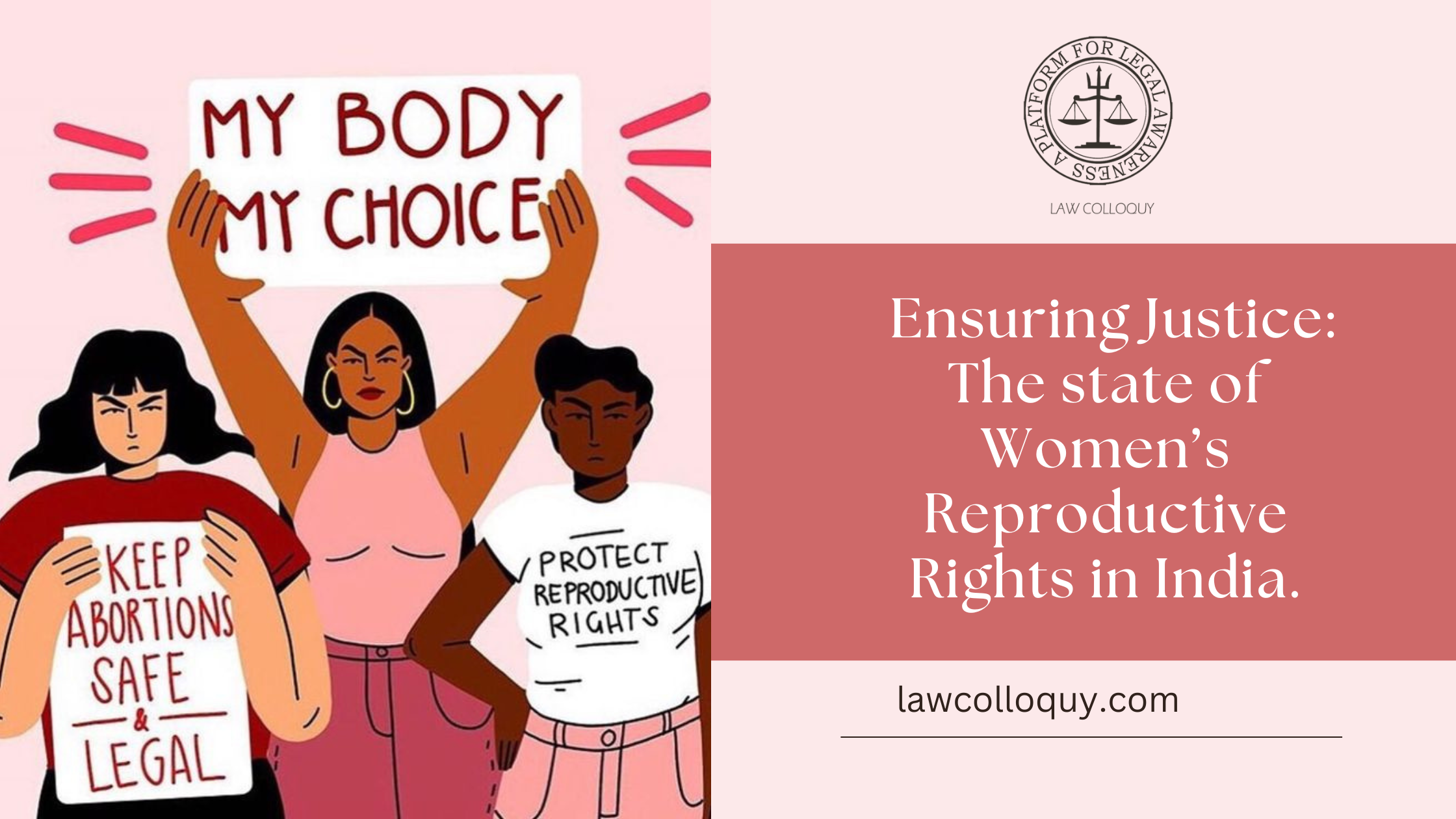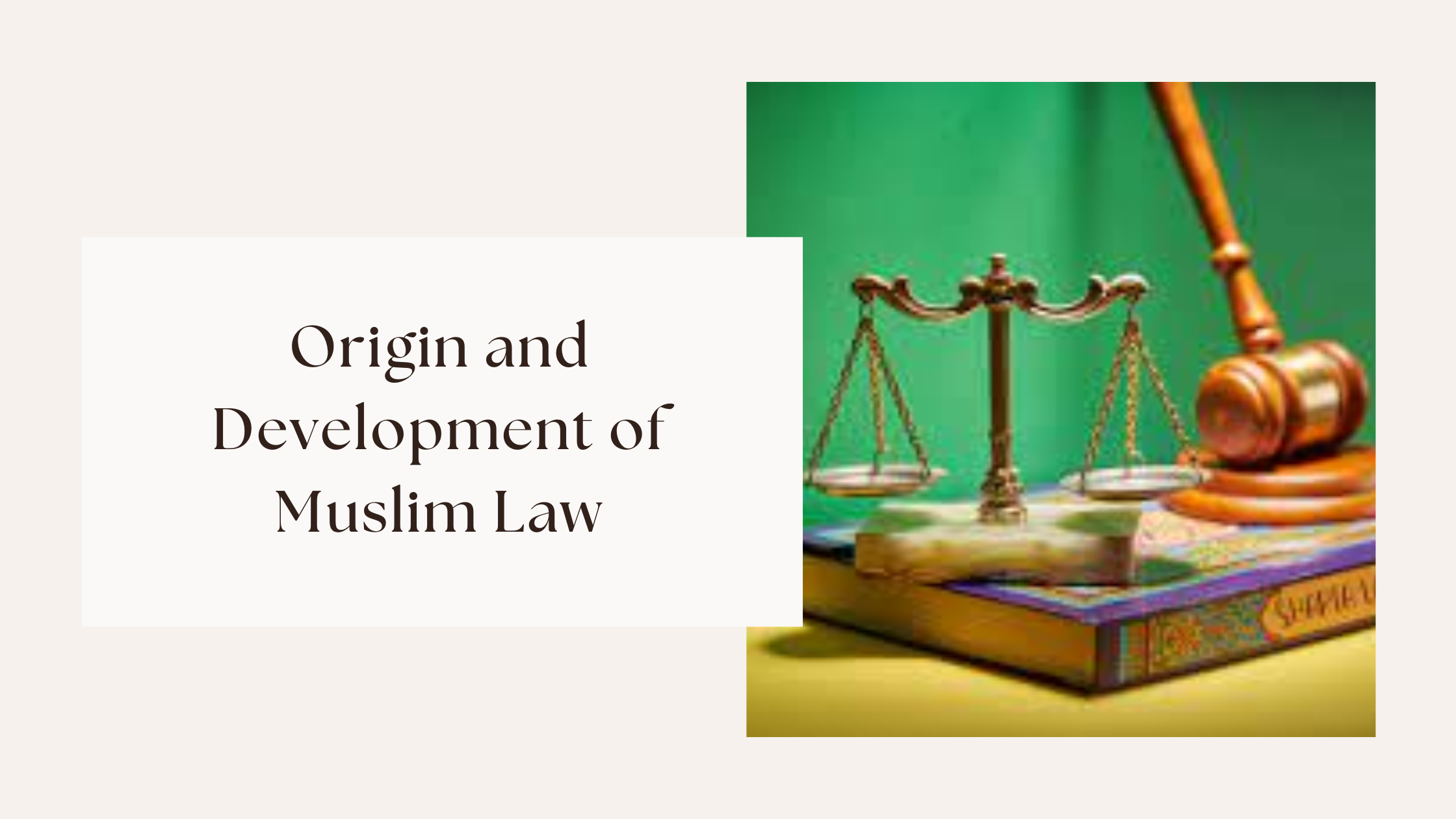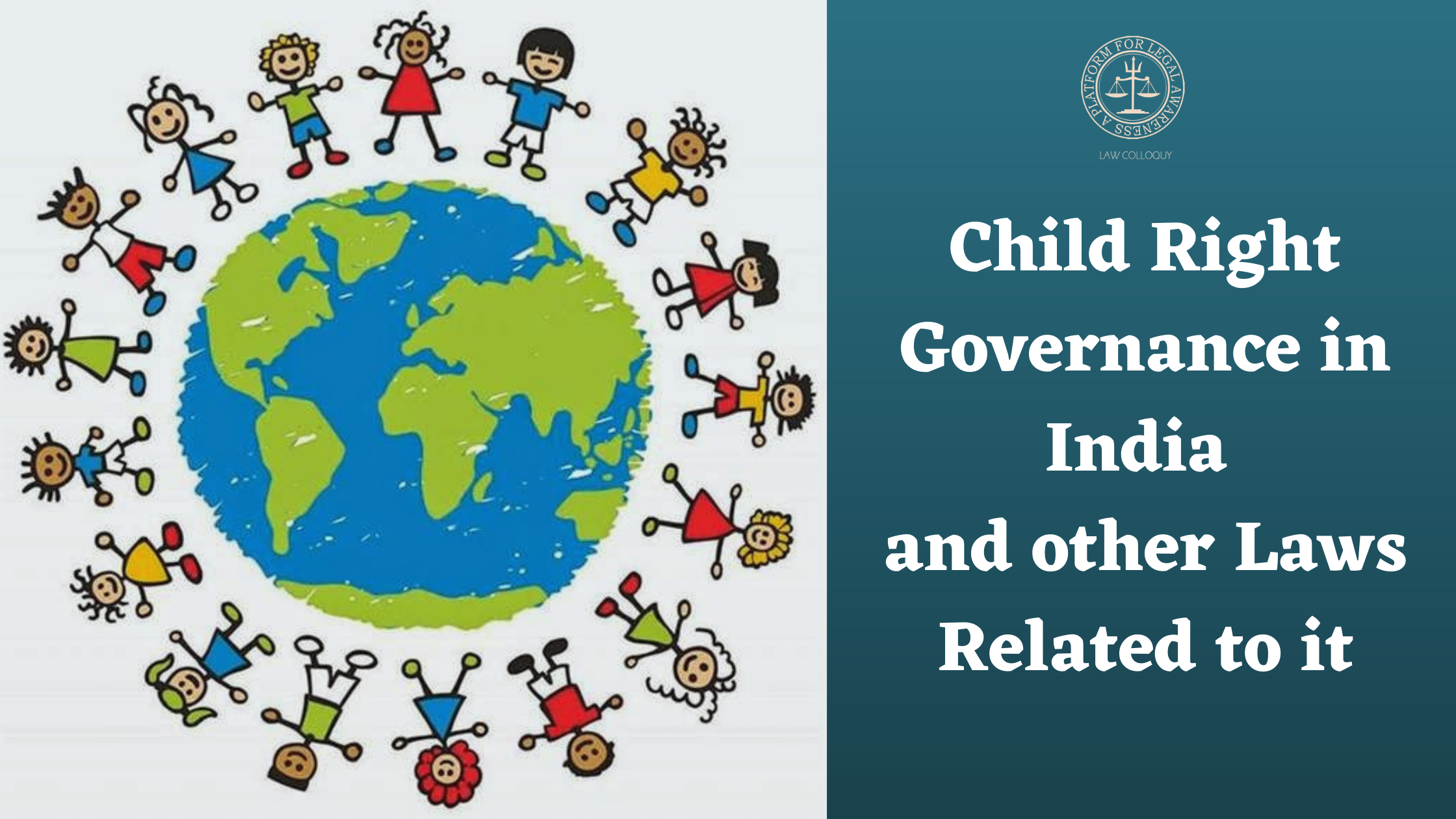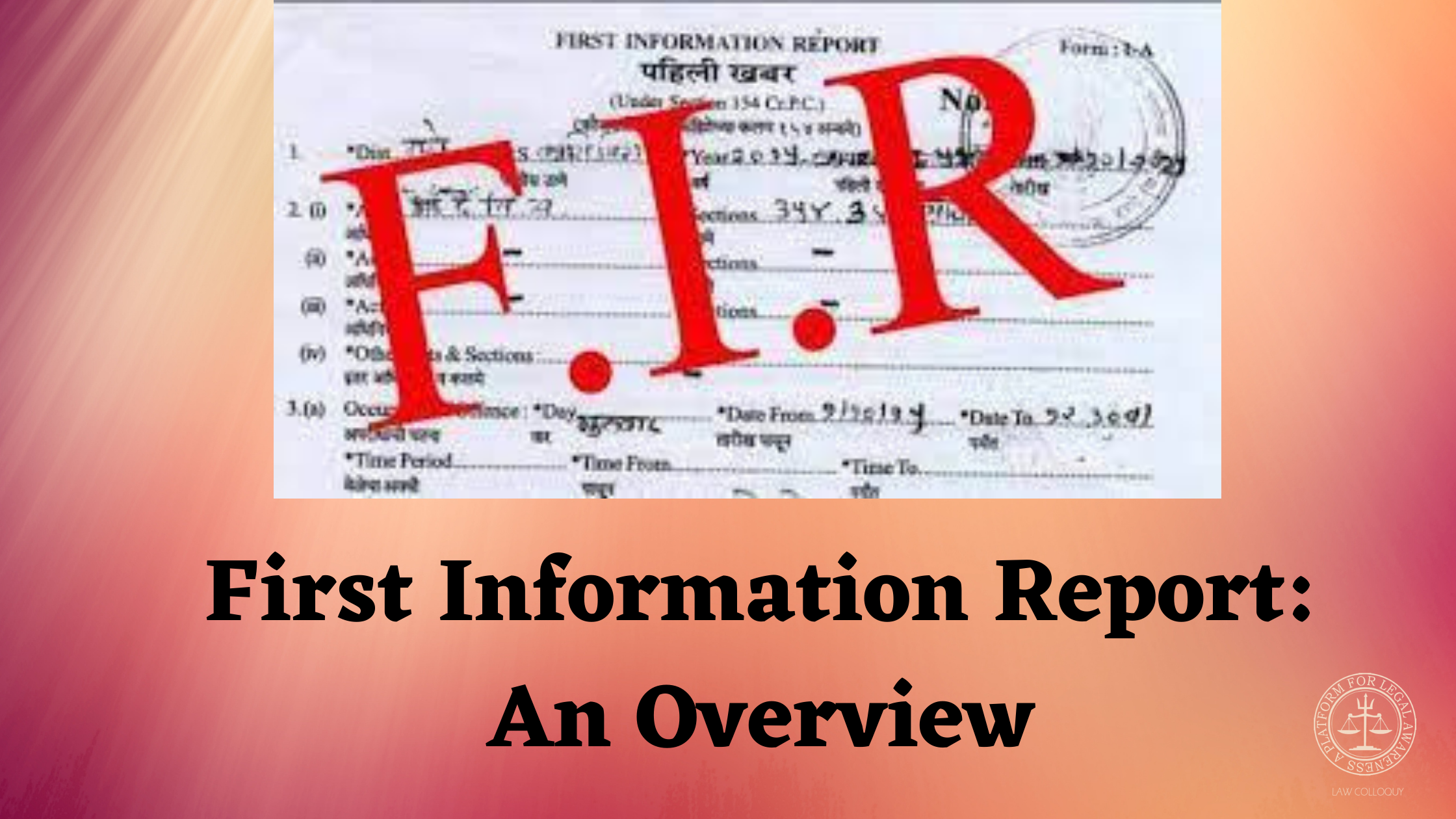Ensuring Justice: The State of Women’s Reproductive Rights in India
The United Nations Entity for Gender Equality and the Empowerment of Women (UN Women) underscores that
Origin and Development of Muslim Law
Muslim law, often called Islamic law or Shari'ah, represents a complex and comprehensive legal system deeply rooted in the teachings of Islam. This legal framework offers various guidelines encompassing legal, moral, and social conduct, influencing personal behaviour, family dynamics, and broader societal interactions. The evolution of Muslim law is intricately linked to the historical journey of Islam and the diverse cultures and societies it has impacted over the centuries. This blog delves into the rich origins of Shari'ah, examining its foundational sources, such as the Quran and Hadith, and tracing the historical developments that have shaped its application and interpretation throughout the ages.
Love Knows No Gender: Freedom of Same Sex Marriage-A paradigm shift
Love knows no boundaries, the road to true equality is still being paved. Same-sex marriage is not just about legality, but it is also about love and respect.
Public Interest Litigations and Lawyering for the Fame Sake: A Practical Approach
Public Interest litigations are meant for making access to justice easier for public at large and for providing justice to those who may not be able to afford costly legal procedures. This blogs discusses about public interest litigation for the fame sake and suggests measures to tackle the issue of frivolous PILs.
The Police Commissionerates System in Bhopal & Indore- Explainer
Before independence, the commissioner system was in force during the British era. It was adopted by the Indian Police after independence. This system is presently applicable in more than 72 metros of the country. Under Part 4 of the Indian Police Act, 1861, the District Officer has certain powers to exercise control over the Police. In this, the Code of Criminal Procedure (CrPC) gives certain powers to the Executive Magistrate for the smooth running of Law and order. Indore is the most populated city of M.P. with a population of 32.72 lakh, while Bhopal is the fifth most populated District with a population of 23.68 lakh as per the census of 2011. Madhya Pradesh Chief Minister Shivraj Singh Chouhan on November 21 announced the implementation of a police commissioner system in the two cities of M.P., Bhopal and Indore, referring growing population and geographical expansion of the two cities and the accompanying administrative and Law & order problems. This blog explains the The Police Commissionerates System and procedure in brief.
Top 10 Legal Headlines of The Week-05 Jul 2021
Top Ten Headlines of The Week
Top 10 Legal Headlines of The Week-06 Jun 2021
News Wrap up of this week
Top 10 Legal Headlines of The Week-31 May 2021
News Wrap up of this week
Child Right Governance in India and other Laws Related to it
Perhaps the most well-known definition of ‘global governance’, James Rosenau designates it as ‘organisations of rubrics at all stages of hominoid action – from the domestic to the worldwide organisation.’ Today the perception of authority has wedged the attention of researchers in fields like political science, economics, business studies, and global relations to analyse an inclusive variety of marvels such as school life, worldwide policy-making, global organisations, public health, monetary dealings, street gangs or traffic rules. Children and youth are in many circumstances obtainable as ruled by others – parents, teachers, social services, religious establishments, or out of control. For youthful scholars, though, the opposite has been basic in the influence of the field of juvenile studies over the last decades. The intervention of children and young people certainly also impact the schemes of guidelines and governance that border them. They are thus as much theme to these systems as they can be energetic and shapers of them, in many cases organised with or in equivalent to the adults adjacent them. Contempt this heading of children as being both marks and shapers of governance, though, with some exceptions, the methodical study of the governance of children and youth have established little consideration within childhood studies as well as to the examination of how child rights are assumed to form in national and multinational politics, law and society.
TOP 10 LEGAL HEADLINES OF THE WEEK 25 May 2021
News Wrap up of this week
First Information Report (FIR): An Overview
Crime and its reporting happen in relays, a country for its good governance & maintenance of tranquility requires complaints to be registered, these then need to be taken in cognizance and resolved in an established manner. A proper administration of the criminal justice system, therefore, requires balancing the rights of the victim and the accused. In India, the distribution of power takes place among its departments and thus reporting of crime, and its settlement happens by involving various branches of government. Reporting of crime is the initial step in the criminal justice system. The ‘First Information Report’ is an essential process in the investigation of a criminal case, in common parlance and in media reporting.
Central Public Information Officer, Supreme Court of India v. Subhash Chandra Agarwal: Right to Information and Judicial Independence
The citizen’s Right to Know is one of the significant ingredients of a democratic country. India demands transparent and accountable government to establish open and good governance. The sovereignty of India lies with ‘the people of India’. We choose our own representative therefore; it is our right to know about the machinery of the country. The need to control the mal administration of the government is important. Right to Information Act was formulated in 2005 which comes within the ambit of Article 19(1)(A) of the Constitution of India which ensures the fundamental right to Freedom of Speech and Expression. Many landmark judgments elaborated and clarified the concept of open governance. In the modern era, people are more vigil about their rights and they constitute the democracy. So, they expect the government to deliver. Central Public Information Officer, Supreme Court of India v. Subhash Chandra Agarwal, 2019, it was held by the Constitution Bench of Supreme Court that Supreme Court comes under the scope of “public authority”. Therefore, it is covered under Right to Information Act, 2005 (RTI Act). It is one of the landmark judgments which took a limelight in recent years.
Top 10 Legal Headlines of The Week. 07 Mar 2021
News Wrap up of this week
Top 10 Legal Headlines of The Week28 Feb 2021
News Wrap up of this week
Top 10 Legal Headlines of The Week21 Feb 2021
Top Ten Headline of The Week
RIGHT TO INFORMATION WITH SPECIAL EMPHASIS ON RIGHT TO PRIVACY IN INDIA
“Information is the currency of democracy,” is very rightly said by Thomas Jefferson. Right to Information is the foundation of a democratic government. In India, democracy vests with the people of India, so we have a right to know. The Right to Information Act, 2005 was formulated which replaced the Freedom of Information Act, 2002. Privacy and RTI are related to each other. The government is accountable to the people in open governance system. In modern era, the people are more aware about their rights as well as their privacy. India’s legal system is formulating various statutes, acts and legislations to make the government accountable and transparent but the concept of privacy runs parallel to RTI. The law provides us the right to access the information held by government authorities on the other hand, the right to privacy ensures the confidentiality to access, collect and usage of personal information about them that is held by governments and private bodies. These two laws are contradictory and complicated.
TOP 10 LEGAL HEADLINES OF THE WEEK 22 Nove 2020
News wrap up of this week
TOP 10 LEGAL HEADLINES OF THE WEEK 15 Nove 2020
News wrap up of this week
Distinction between Fundamental Rights and Human Rights
Rights are the reasonable privileges of people. These claims are ensured by law. According to law, rights are considered as the sensible case of the people which are acknowledged by the general public and affirmed by statute. It can be fundamental rights or human rights. The rights which are principal to the life of the citizens of a nation are known as fundamental rights. The primary contrast between fundamental rights and human rights is that the fundamental rights are particular to a specific nation, while human rights have overall acknowledgment. Fundamental Rights and Human Rights are essential for the presence and improvement of people. It makes a superior domain and better living conditions for individuals, and in addition, they, protect their nobility. Human rights and fundamental rights are key rules that remain at the premise of any fair and equivalent society.
TOP 10 LEGAL HEADLINES OF THE WEEK 14 Oct 2020
Special Leave Petition Against HC Order Rejecting Review Petition Cannot Be Entertained When Main Judgment is Not Challenged: States SC
ABORTION AND INTERNATIONAL LAW
The abortion decision involves several parties, all with their own legally protected interests, civil liberties or fundamental human rights. These parties are the fetus, the pregnant woman, the doctor, the father of the fetus and the parents of the pregnant minor.
Interface Of Ai And Iot: An Intellectual Property Perspective
When we hear the terms Internet of Things (IoT) and Artificial Intelligence (AI), most of us divulge into the thought of a world which is ahead of its time often portrayed in the movies.
THE TRUTH ABOUT RELIGION AND FGM
Female Genital Mutilation (often referred to as FGM) is a destructive operation
Biological Age cannot be inclusive of Mental Age
The judiciary is racing towards the liberal interpretation from the strict interpretation of the laws, statutes, and provisions and so on.
The curious case of Enola Holmes
Intellectual Property Rights is the cornerstone of development and enhancement of contemporary literature, performing arts and technology.
Daughter's Right To Ancestral Property: What You Need to Know
In a landmark judgment, recorded on, August 11th, 2020, the Supreme Court expanded on the rights of Hindu women as legal heirs to ancestral property.
Difference between Investigation and Inquiry under Criminal Procedure Code 1973
The criminal procedure in India is governed by the CrPC 1973.
Amicus Curiae: The Indian perspective
An amicus curia is a Latin word which means, ‘friend of the court. He/she is a person appointed by the court who is a specialist in any specific area along with the legal knowledge who can assist a court by offering information, expertise, or insight that has a bearing on the issues in the case in the form of a brief. He is not a party to a case and should not be appointed by a party to maintain the transparency and unbiased decision. The Court appoints him and the court itself provides his fees/consultation. The decision on whether to consider an amicus brief lies within the discretion of the court.
The Comfort of Downloading and Its Effects on Copyright
With the emergence and vast development of the internet and the World Wide Web, information on a wide range of subjects has been made available at the tip of an individual’s fingers. Additionally, with the comfort of obtaining and storing information through the popular method of downloading, there has been a significant leap in the transfer of digital information across the globe. Even though downloads have been seen as a blessing, it has also been an issue and has created concerns concerning copyright. This article aims to provide an insight on the issue downloading and its impact on copyright. The author also provides suggestions for reform and a conclusion for the same.
Jurisdiction of Supreme Court of India
According to Article 124 of the Indian constitution, there shall be a Supreme Court of India. The constitutional powers and jurisdictions of the Supreme Court have been defined from Article 124-147. The Supreme Court is meant to be the highest court of appeal which takes up appeals against the verdict of High Courts. Supreme Court at the apex of Indian Judiciary to uphold the constitution of India, to protect the rights and liberties of citizens and to uphold the values of rule of law. Hence it is known as the guardian of our Constitution.
Registration of Film Titles Under the Indian Trademark Law Updated: Jul 31
The title is recognised as the primary distinguishable feature of a movie, and the revenue that accrues from a movie can be principally be identified with its title. For the same reasons, the protection of the title is vital for any person receiving benefits out of the creation. Contrary to common understanding, the trademark law in India is the legislation which protects the title of a movie. This article aims at providing an insight into the registration of films under the Trademark Act, and landmark cases associated with it.
Mind the Gap: Women's fight against the gender pay gap
This article addresses the issue of the gender pay gap in India and studies the law on maintaining equal pay. Further, it also analyses some case studies to understand the issue in depth.
How Kerala tackled Covid-19 pandemic
Kerala is one of the states in India which effectively tackles the Covid-19 situation among the country. Surpassing many other developed states, Kerala state was able to flatten the curve of Covid-19 pandemic which many other states were not able to do. Kerala has a long history of Social development, dating from the “Kerala Development Model” in the late 1970’s. For sustained long-run development, Kerala mainly focuses on the development of health, education of people and technological advancements. After the state embraces the globalisation policies in the mid-’90s, the state continuously focuses its development of literacy to its people, education and health sectors.











